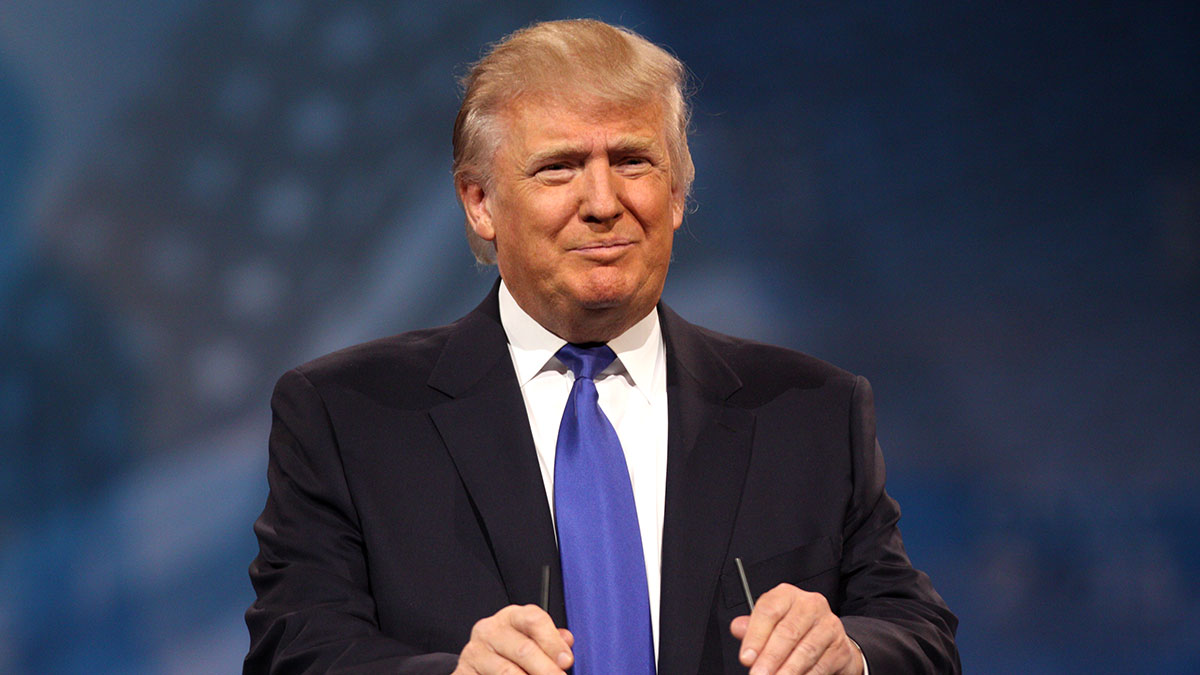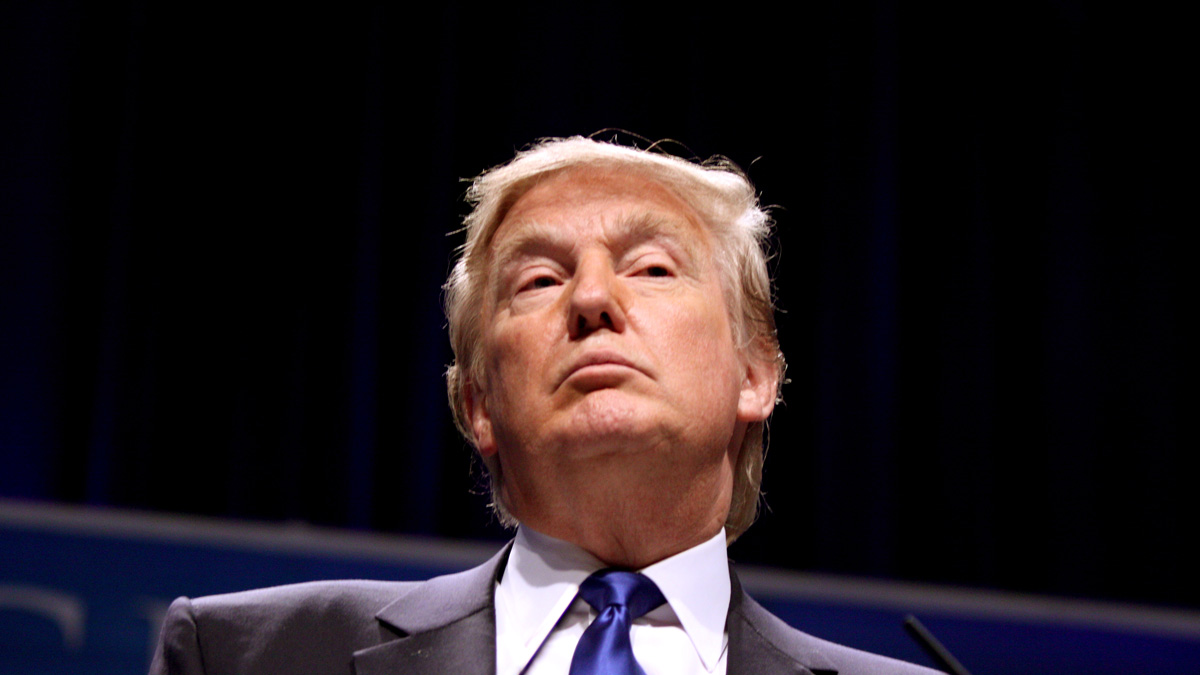Trump has returned: Now how does Canada survive?
With Trump back in office and new trade policies looming, Canada faces a high-stakes balancing act to protect its economy and industries from potential tariffs and diplomatic turbulence.
 Supplied — Gage Skidmore
Supplied — Gage SkidmoreCanada’s in a familiar spot: watching its biggest trading partner grab a sledgehammer and start “renovating” the trade deal. With Donald Trump set to return to power as president of the United States (U.S.) in January and Republicans solid in Congress, Canadian industries brace for tariffs that could hit harder than a double-double after a sleepless night. It’s clear that navigating the U.S. election fallout may take more than polite diplomacy. Our own upcoming federal election could provide the change needed to properly navigate another Trump administration.
The recent U.S. election has significant implications for Canada, given our close economic and diplomatic ties. As of November 13, Trump secured the presidency with 312 electoral votes, surpassing the 270 required to win. He received approximately 75.9 million votes, accounting for 50.2 per cent of the popular vote. Sitting Vice-president Kamala Harris garnered about 72.9 million votes, or about 48 per cent. In Congress, Republicans have gained control of the Senate with 53 seats. In the House of Representatives, they secured 218 seats — the number necessary for control.
With Trump’s return to office, Canada faces the prospect of increased tariffs on all exports, particularly on key exports like aluminium, steel, and agricultural products. Trump’s previous administration took a strong protectionist stance, placing American industry at the forefront of policy. Often, they imposed tariffs on allied nations to prioritize domestic industry. While this is a fair approach for American citizens, it often negatively impacts their allied nations. This approach creates immediate challenges for Canada, where small and medium-sized businesses depend heavily on trade with the U.S.. Higher operational costs due to tariffs would reduce these businesses’ competitiveness in the American market.
Tariffs under Trump’s protectionist agenda would likely impact various sectors differently. The manufacturing and natural resources sectors would see higher input costs. Tariffs on components, steel, or aluminium could severely disrupt cross-border supply chains, especially in the automotive industry. With increased production expenses, Canadian firms would find it harder to remain competitive.
Beyond specific industries, Trump’s policies could create uncertainty for Canadian businesses as they weigh expansion and investment plans. Even larger firms would likely feel pressured by unstable trade policies, which could affect hiring, wages, and overall growth. In a scenario where Canada cannot fully rely on the American market, businesses may be forced to pivot to new trade partners, though doing so takes years of negotiation and policy work.
Given these factors, a Conservative government in Canada might be well-suited to manage diplomatic relations and maintain stronger ties with a Trump administration. The Conservative Party has historically emphasized a pro-business approach that aligns with Trump’s economic priorities. By focusing on shared goals like economic growth, energy independence, and securing jobs, a Conservative government might be able to secure trade exemptions or negotiate more favourable terms. This might mitigate some of the adverse effects of protectionist policies on Canadian industries. Furthermore, a shared commitment to business-driven growth could foster cooperation on issues like border security, resource sharing, and infrastructure projects.
The potential advantages of a Conservative government extends beyond trade. A pragmatic, business-oriented approach would allow Canada to pursue diversification more actively, establishing trade relationships outside of North America. While challenging, such diversification would help reduce dependency on the U.S. and provide Canadian industries with a wider market. Over time, strategic partnerships with Europe, Asia, and other regions could help stabilize Canada’s economy, providing a cushion against the volatility of American trade policies.
A Conservative government could also play a critical role in maintaining consistent communication channels with the U.S., regardless of administration changes. By focusing on mutual economic benefits and staying closely engaged in discussions, Canada could keep key issues like resource sharing and joint security initiatives at the forefront. Even as the American political landscape grows more unpredictable, fostering a resilient Canada-U.S. relationship remains essential.
The Liberal government under Prime Minister Justin Trudeau may face substantial challenges in navigating a renewed Trump presidency. This is due to the stark contrast in their political ideologies, policy priorities, and approaches to international relations. Trudeau’s administration has largely focused on progressive domestic policies, including climate action, immigration reform, and an emphasis on multilateralism. In contrast, Trump’s “America First” approach often entails a focus on unilateral decision-making and protectionist policies that could directly clash with Canada’s interests, particularly regarding trade, climate agreements, and border issues. Trudeau’s reliance on diplomacy and his commitment to liberal internationalism may not align with Trump’s more confrontational, transactional style. Potentially, this could compromise Canada’s ability to maintain a stable and cooperative relationship with its most significant trading partner.
Moreover, Trudeau’s leadership style and political capital are currently weakened by domestic issues. This includes growing dissatisfaction over economic policies, carbon taxes, and high inflation rates. The Liberal government’s commitment to climate action, for example, might be undermined by Trump’s pro-fossil fuel stance, potentially affecting Canada’s energy sector and its commitment to reducing emissions. In this scenario, Trudeau’s government may struggle to adapt effectively to the erratic policy shifts and protectionist measures that often characterize Trump’s administration, making it difficult for Canada to protect its interests and maintain the stability needed to withstand such volatile cross-border relations.
As Canada adjusts to a shifting U.S. political landscape, it must actively adapt its approach to American policies. This election reinforces Canada’s need for a balanced strategy that supports economic ties while actively seeking alternative markets. Trump’s tariffs create obstacles, but a Conservative-led Canada could navigate these challenges by promoting co-operation and exploring diversification. Protecting Canadian interests is a must in an increasingly complex North American partnership.




